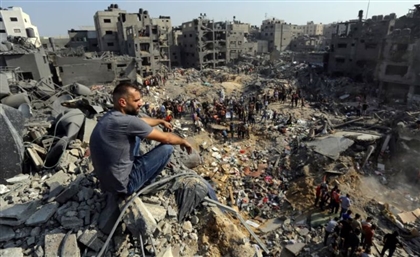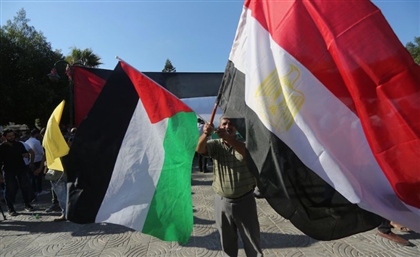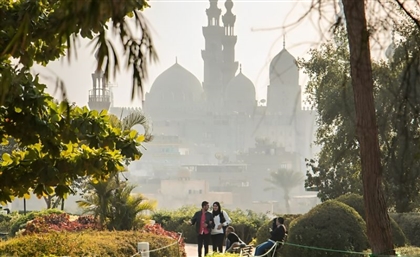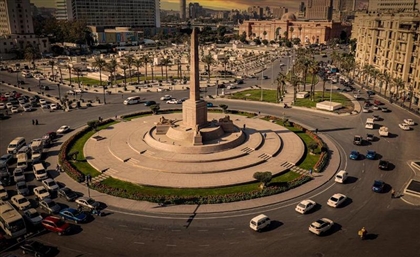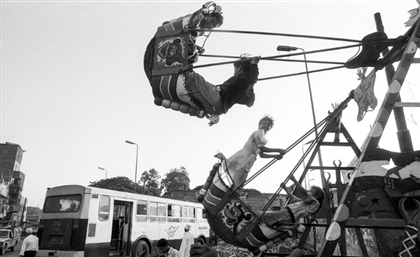Egyptian Tales of Jerusalem: Living Amongst Intimate Enemies
Award-winning journalist and author Khaled Diab is one of the few Egyptians living, breathing and writing about the Palestinian experience. He tells Valentina Primo about surreal situations and civil movements calling for dialogue...from both sides.
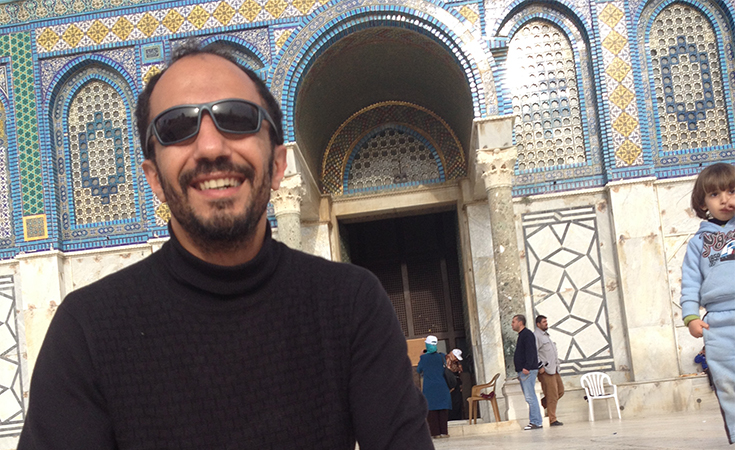
Khaled Diab is an Egyptian-Belgian journalist who moved to Jerusalem seeking to delve into the human landscape of a city often depicted in dichotomous terms. An internationally recognised writer and winner of the Anna Lindh Foundation’s Mediterranean Journalist of the Year in 2014, Diab moved to Jerusalem in 2011, as he attempted to visualise the situation from its multiple perspectives, focusing on the human lives behind the statistics and the personal stories beyond the labels.
“Whether to their leaders, allies or enemies, Palestinians and Israelis are too often symbols rather than flesh-and-blood human beings, exploited as political pawns for the greater cause,” he says in his book Intimate Enemies: Living with Israelis and Palestinians in the Holy Land. The e-book, released by Guardian Shorts in October 2014, collects the experiences of his personal journey into a land where everything, from choosing where to buy food to deciding what to call a monument, is drenched in politics.
“As a journalist and an Arab, I have always been interested in the conflict,” he tells CairoScene. “I had written about the conflict, but aside from the history and geopolitics, I didn’t know enough about the human side of it and I wanted to see the situation on the ground.” It was only after he gained Belgian citizenship that he was able to visit Israel and Palestine, as he no longer required a visa.
A Surreal Experience
“When I first visited in 2007, everything was hyper-real and super intense, from seeing teenage soldiers holding M16s on the streets, and going through checkpoints, to seeing flesh-and-blood Israelis in their element for the first time. As an Arab, you grow up with an almost mythical view of this land, and when you encounter it for real, it is a very intense, surreal experience.”
Four years on since he moved there in 2011, the bizarre situations surrounding daily life in a city where the sacred and the profane so contrastingly overlap, can still surprise. “The other day I took my son to a park and found it filled with Israeli and Palestinian lovers, oblivious to each other. In the political context, it is a very mundane situation; yet at the same time, it seems very surreal and hugely symbolic,” he says.
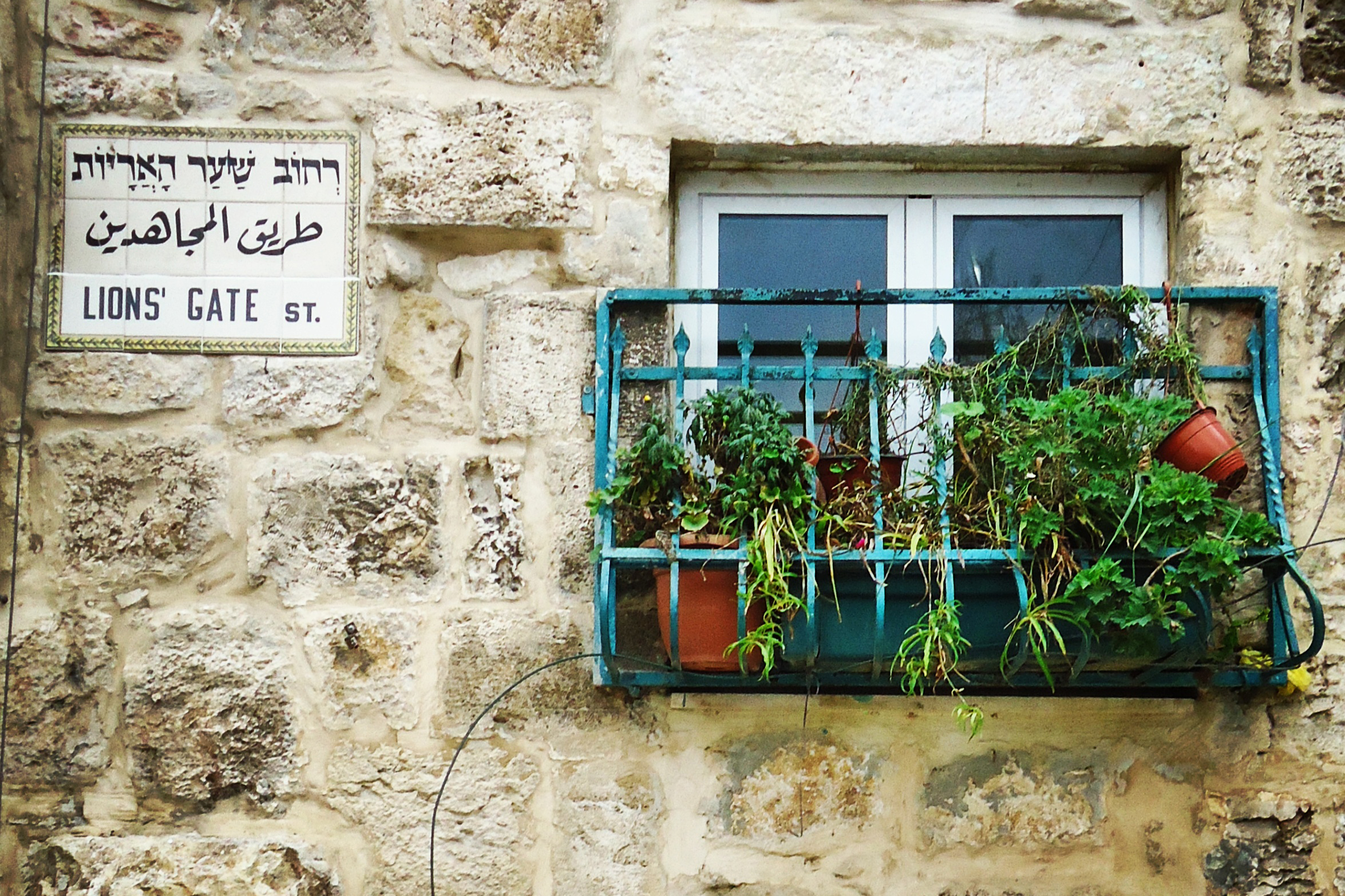
A street in the Old City, East Jerusalem.
“You never become numb to the injustices, and having more rights than Palestinians sometimes hurts,” he points out, referring, for example, to the restriction often imposed on Palestinian men entering the old city on Fridays, or the hundreds made homeless by home demolitions and evictions imposed by the Israeli government in East Jerusalem. According to the United Nations Office for the Coordination of Humanitarian Affairs in the Occupied Palestinian Territory (OCHA OPT), Israeli authorities have demolished around 2,000 houses in that area since 1967, while 35% of East Jerusalem’s land has been confiscated for Israeli settlement use.
The UN agency estimates that at least one third of all Palestinian homes in East Jerusalem lack Israeli-issued building permits, potentially placing over 90,000 residents at risk of displacement and causing psychological distress. “Seeing people made homeless so that settlers can move in or people living uncertainty because they may get evicted is incredibly troubling,” Diab says.
But despite the increase in institutionalised and casual discrimination, “so have the efforts by well-meaning people to combat it increased,” Diab says. “I try to look beyond politics and see the human side of things, because there are many varieties of Israelis which we tend not to see in our world. The situation is incredibly diverse and complex.”
The checkpoints, the wall, the numerous restrictions on Palestinians entering Jerusalem and Israel, and the grim warning signs to Israeli citizens prohibiting them from entering Palestinian towns all constitute “physical and psychological barriers” between Israeli and Palestinian nationals. “But there are also surprising areas of contact,” he explains.
“There is a growing minority that is trying to start a dialogue on an individual basis, as well as grassroots organisations trying to promote communication,” he says, as he points to the work of organisations such as Combatants for Peace, the Parents Circle which brings together families who lost family members in conflict from both sides, the Peace NGO Forum, and Zochrot, an Israeli NGO focused on raising awareness about the Nakba.
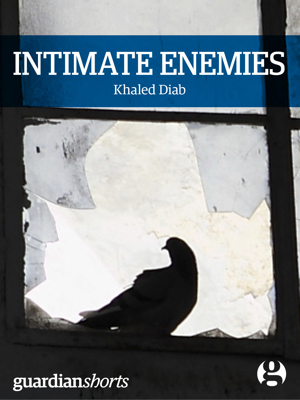
Diab's recently published book, Intimate Enemies: Living with Living with Israelis and Palestinians in the Holy Land.
Spending Ramadan in the Holy Land
While traditions are very similar as those in Egypt, such as having large family gatherings and watching TV soap operas, Ramadan is more of a family affair in Jerusalem. “It is not a city that never sleeps, so it is more quiet and reserved than in Cairo. You don’t have people reversing their day, or streets becoming a hive of activity,” says Diab, whose Egyptian melodic accent has earned him a distinct charm amongst Palestinian fans of Egyptian mosalsalat. “As people only see Egyptians on TV, there is a sort of glamour attached to being Egyptian. You get all kinds of comments and it sometimes opens doors, but at other times, when I’m in a hurry, I try to hide my Egyptian accent,” he laughs.
The writer says that while there are inter-religious activities in cities like Haifa, known as the most integrated city in Israel, such cross-religious contact is rarer in Jerusalem. “If you go to West Jerusalem, you don’t feel Ramadan is happening, but then you can find some strange anomalies, too, such as a Jewish Sufi I met once, who used to fast during Ramadan as he believed in the Sufi path,” he says. “There are, for example, a lot of Palestinians in Jerusalem who often go shopping in Israeli malls located in settlements despite the BDS [Boycott, Divestment and Sanctions] movement. Some Israeli settlement malls even advertise special Ramadan sales on Palestinian buses, which is a bit strange. Politics and reality don’t always correspond,” he considers.
Immersed in an exceptionally diverse context despite its comparatively small population (it roughly equals half the population of Cairo), Diab states: “every part of this land has a distinct character and there are striking diversities, not only between Israeli and Palestinians; sometimes the distance is greater within their own community.”
Where mainstream narratives portray two antagonistic, dichotomous identities, the author explains there is a staggering diversity often pushing each community apart, and surprising similarities between the two sides. “The Israeli occupation has fractured Palestinian identity, but there is also a fair amount of localism and tribalism within Palestinian society.”
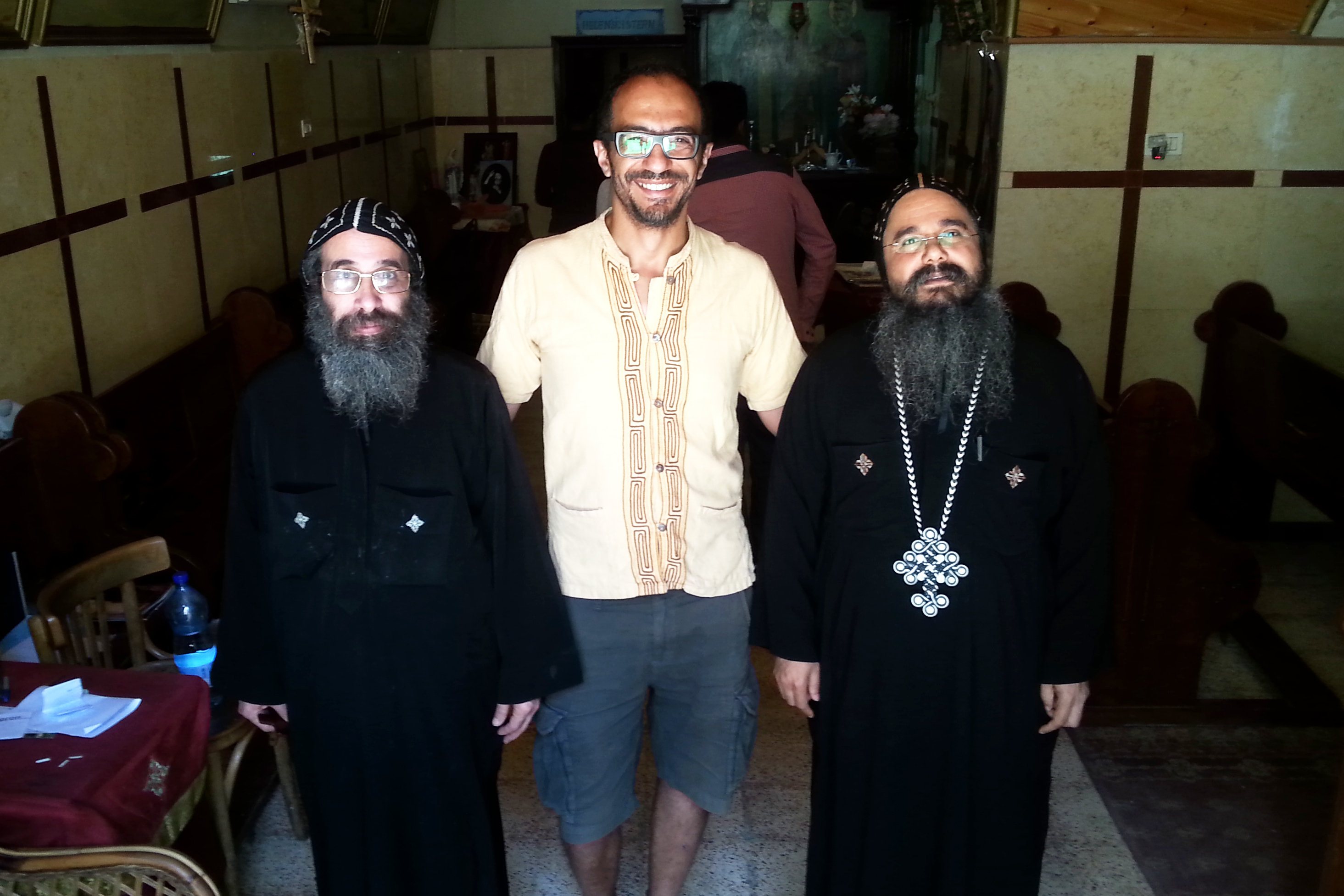
Diab with Coptic monks at St. Helena's Coptic Church near the Holy Sepulchre in Jerusalem.
“Clans are very significant here; it is a huge thing,” he says. “I get asked all the time 'eni dar?' (which clan do you belong to?). It is hard for them to understand that clans in Egypt mean nothing. Losing Palestine geographically means that they cling on to it metaphysically by attaching great importance to the village of their ancestors.”
Diversity is also a striking feature amongst Israeli Jews, from the pious religious Jews of Jerusalem, to the liberal, party-loving hipster community of the coast.
Signs of Hope
Despite different attempts by political forces to highlight differences, exploit the fear factor and maintain the status quo, the writer considers that ordinary people can gradually provide an exit to the conflict. “Recent years have witnessed a strengthening emancipation movement amongst Palestinians,” the author says. “The grassroots efforts to challenge the status quo are gaining steam and the focus of the conflict is gradually shifting away from abstract issues related to nationalism and statehood and towards issues like civil rights, equality and dignity. I see the main hope for the future lying more with the people than the politicians.”
Diab thinks the path for peaceful coexistence lies in the “non-state solution”, which he calls the civil rights path to peace. “The two-state option died many years ago, and when Netanyahu said there will be no Palestinian state, we reached a de facto turning point. A lot of people on the ground are realising that the game is changing and there is a change in the civil rights agenda,” he says.
As Palestinian citizens of Israel progressively begin to combat rising discrimination and demand equal rights, Palestinians in Jerusalem, the West Bank and even Gaza can follow their example and demand their civil rights and full citizenship.
“Once everyone is emancipated, then they can start a process of true conciliation, a people’s peace process which will involve every segment of Israeli and Palestinian society. Ultimately, the final format of the state should be up to the people to decide, not up to the international community nor the political elites. But before then we have to deal with the urgent matters at hand; human and civil rights,” he concludes.
Trending This Week
-
Apr 10, 2024




